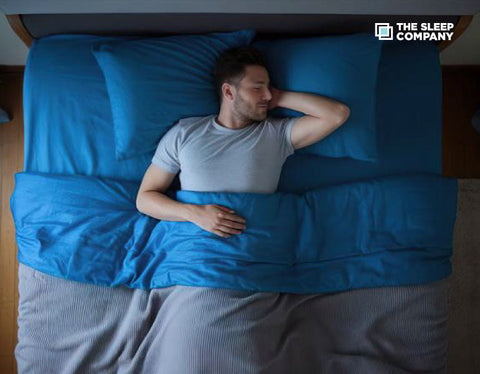My Cart

Tips to Keep Your Bones Healthy Through Better Sleep


In the experiment that was carried out using laboratory rats, the researchers observed that a lack of sleep led to a stoppage in the creation of new bone. In furthermore to, the density of the bones that the rats already had proceeded to diminish as it normally would over time.
When it came to the bone marrow, they discovered a reduction in the amount of fat and an increase in the number of cells that generate platelets. The conclusion that can be drawn from all of this is that the rats used in the study had far less flexibility and had bones that were more brittle.
Another study conducted in China discovered a correlation between getting less sleep and having reduced bone density in women who were middle-aged or older. The study participants were middle-aged or older.
Understanding bone health

We can deduce from this that in order to take proper care of one’s bones, one’s body must be capable to go through a process known as bone remodelling. The process is also essential to maintain the body’s flexibility in order to prevent fractures, which is why it is so important. When we return to our regular routine, our bones swiftly recover from the typical wear and tear that occurs.
On the other hand, a drop in bone density is possible when sleep deprivation has a harmful effect on the remodelling of bones. As a result, we run the risk of becoming less flexible, which makes us more likely to suffer from fractures and osteoporosis. There is no room for debate; getting enough sleep is necessary for maintaining healthy bones. Continue reading for some helpful pointers on bone health that can contribute to an increase in bone density.
How does sleep help bone health?
In the course of sleep, the body goes through a variety of beneficial processes, one of which is bone remodelling, which is the process of removing old bone tissue and replacing it with new bone tissue. There is a pattern that repeats itself throughout the day. If you are sleeping less than usual, one possibility could be that the rebuilding of your bones isn’t taking place as it should.
Tips to Keep Your Bones Healthy Through Better Sleep

Increase your levels of melatonin.
In addition to assisting with sleep, melatonin also performs the role of an antioxidant, minimizing the bone damage that can be produced by both physical activity and the presence of free radicals in the surrounding environment. It can speed up the recovery process after a broken bone or surgery.
Even while taking melatonin pills can make us dependent on them, there really are numerous other natural solutions that can assist in increasing the amount of melatonin that our bodies produce. Take in some natural light each day, but try to sleep in a room that’s as dark or as softly lit as possible.
Incorporate melatonin-rich foods into your diet. Some examples of such foods include sunflower seeds, almonds, eggs, and sour cherries. These foods can help you get started on the path to increasing the density of your backbone.
Get your blood pumping:
Even just 10 minutes of aerobic activity can improve your quality of sleep for the rest of the night. Be sure to get your workout in throughout the day, and avoid doing it too close to bedtime. After exercise, you must give yourself time to rest and recuperate before continuing.
People frequently ask what kind of physical activity is best for developing bone density and strength. Exercising with a load, also known as weight-bearing conditioning, has been demonstrated to be advantageous for greater bone health. Walking while wearing a weighted vest is one of the most well-liked and secure ways to get in some extra exercise without going overboard it.
Because it helps people become more flexible and improves their balance, yoga lowers the chance of broken bones from falls. A healthy body weight is something that should be maintained at all times. Obesity is linked to sleep apnea, a condition that makes it difficult to fall or stay asleep.
Minerals and Vitamins
Magnesium has been lauded as a sleep aid, and it is also fantastic for creating strong bones. Making sure you get enough of the proper minerals and vitamins is important. There is evidence that calcium, iron, and zinc all contribute to protecting against osteoporosis. Because it makes it easier for the body to absorb calcium, vitamin D is an essential component in the treatment of osteoporosis.
You can obtain vitamin D from being exposed to sunlight, as well as by consuming saltwater fish, liver, or foods that have been fortified with vitamin D. A restful night’s sleep is much easier to achieve when your nutritional needs are met. This, in turn, contributes to improved bone health.
Sleep schedule
Develop a regular pattern for your sleep. Maintain a regular sleep and wake schedule, including on the weekends, by going to bed and getting up at the same time each day.
- Make use of the hour that’s left before you go to sleep to write in a journal. Writing down your worries and the ideas that have been going through your head during the day might sometimes help you get to sleep.
- You should forego the late-night snack. At the very latest, stop eating at least 3 hours before going to bed. The spikes in your blood sugar that can cause you to wake up in the middle of the night will be reduced as a result of this.
- Spend your money wisely by purchasing a high-quality mattress that will allow you to have restful sleep. A quality mattress and pillow case are investments that will always pay off for you and provide you with the highest possible results.


































































